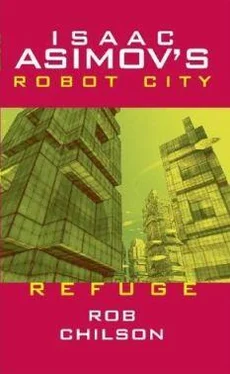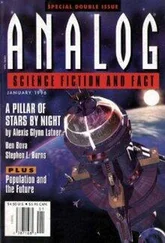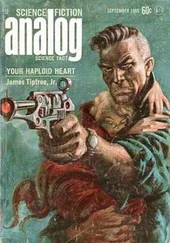Rob Chilson - Refuge
Здесь есть возможность читать онлайн «Rob Chilson - Refuge» весь текст электронной книги совершенно бесплатно (целиком полную версию без сокращений). В некоторых случаях можно слушать аудио, скачать через торрент в формате fb2 и присутствует краткое содержание. Год выпуска: 2004, ISBN: 2004, Издательство: I Books, Жанр: Фантастика и фэнтези, на английском языке. Описание произведения, (предисловие) а так же отзывы посетителей доступны на портале библиотеки ЛибКат.
- Название:Refuge
- Автор:
- Издательство:I Books
- Жанр:
- Год:2004
- ISBN:ISBN: 0-743-48716-8
- Рейтинг книги:5 / 5. Голосов: 1
-
Избранное:Добавить в избранное
- Отзывы:
-
Ваша оценка:
- 100
- 1
- 2
- 3
- 4
- 5
Refuge: краткое содержание, описание и аннотация
Предлагаем к чтению аннотацию, описание, краткое содержание или предисловие (зависит от того, что написал сам автор книги «Refuge»). Если вы не нашли необходимую информацию о книге — напишите в комментариях, мы постараемся отыскать её.
Refuge — читать онлайн бесплатно полную книгу (весь текст) целиком
Ниже представлен текст книги, разбитый по страницам. Система сохранения места последней прочитанной страницы, позволяет с удобством читать онлайн бесплатно книгу «Refuge», без необходимости каждый раз заново искать на чём Вы остановились. Поставьте закладку, и сможете в любой момент перейти на страницу, на которой закончили чтение.
Интервал:
Закладка:
He’d seen a system like this before, on a somewhat different scale. The Robot City robots had generated a tremendous vacuum as a side effect of their Key-manufacturing facility, and Derec and Ariel had ridden the vacuum tubes more than once when they were in a hurry.
But here on Earth they were using the same technology not because they had a vacuum they could use; they had to create a vacuum to make it work. In one form or another, Derec knew, vacuum tubes like these had been used since the early industrial age-and Earth had apparently never discarded their use, because on Earth they made sense.
“Much more efficient than sending a car with a robot,” he said.
It is if your houses are close together, Ariel thought. On the Spacer worlds, they were scattered.
The station seemed to deal mostly in inter-urban freight, but there was a window for passenger traffic. They avoided it, and prowled along the cars.
The train was no moving beltway, as Ariel had expected. Derec was clearly disappointed; he had expected something like the expressway. These were cars with ridiculously tiny wheels, and after a while Derec decided that they used magnetic levitation under speed. It was a very old technique.
“Now I see what R. David meant by saying that the way is largely roofed over,” Ariel said.
“Twelve hours in one of those, eh?” Derec said, bleakly.
The cars had no windows.
“Hey! Hey, you! You kids!”
They turned, concealing their apprehension.
A rough-looking stranger approached, wearing blue canvas and a peaked cap with stripes of pale gray and darker blue-gray, very distinctive. CONTINENTAL RAILROAD, said the emblem on his chest.
“What are you doing here?”
“Looking at the train, sir,” said Derec, after a moment, trying to mimic the Earth dialect.
The other did not notice that. He closed in and examined them sharply, a beefy individual, taller than either of them and looking as if he worked out every day.
“Why?” he asked, irritably.
“School assignment, sir,” said Ariel, thinking quickly.
He looked at her sharply again in her tight shipsuit, and she realized with a despairing feeling that she no longer had the figure of a schoolgirl. But he nodded, more in appreciation of her than in agreement, and said, more reasonably, “ A study of the Continental system, eh? Well, you’ll not learn much by prowling the yards. Read your books. But I can show you the marshaling yard and the loading docks. You should’ve brought visual recorders.”
Evidently their new acquaintance-Peter, or Dieter, Scanlan-had little to do at the moment and was bored. Taking them briskly back the way they had come, he showed them where the cars were pulled aside, their doors opened, and men in handling machines carried forth containers of assorted cargo.
“That lot is bulk cargo, mostly-wheat from Kansas and points north,” Scanlan shouted over the constant rumble of wheels and the whine of electric motors. “Now, over there -see those big blue cars?-that’s pigs of metals from the seawater refineries on the Gulf, down south-away. You’ll see some manufactured goods going out, and quite a bit coming in-St. Louis mostly exports food, especially gourmet items. Not a big manufacturing city like Detroit.”
What Ariel saw was that each of these big cars was crammed full of containers cunningly stacked to fill every corner, leaving no wasted space for even a rat to hide in.
“Come this way,” said Scanlan, and he put them on a tiny truck like a motorized platform.
Its control was purely manual and Ariel fought down fear as she joined the men on it. Scanlan sent it hurtling around the fringes of activity to dive into a bright tunnel, which branched, branched again, and minutes later and two kilometers away he braked to a halt at a balcony.
They looked down on the marshaling yards.
“Trains are made up here,” he shouted-it was noisy here, too.
Ariel looked, and realized why they were called “trains”: each was a long series of units like link sausages. The cars were the units. They were being driven individually along the floor to the marked “rails” or roads painted on the floor, to the trains they were to make up. Each train was made up in a specific order.
“Over there to your left-passenger train for the West Coast. Three cars in blue, with silver and gold trim.”
It was crawling slowly on its wheels toward, she supposed, the ticket window and embarking ramp. Once in the tunnels the cars would be lifted off their wheels by the magnetic rails.
On their right was a train of a hundred cars, in various colors according to what cargo they carried. That seemed to be the ratio of passengers to freight, except that there were more freight trains than passenger trains.
“Computer-controlled,” shouted Scanlan. ‘There’s a driver in each car for safety, but the computer does most of the placing. It knows where each car goes in the train. They pick up new cars at each stop on the front end, and drop off cars from the tail. The computer also knows which container is in each car, and what’s in each container.
“Down here!”
Scanlan started the vehicle up again, whirled them down and down, braked in a flood of light. Black water lapped ahead of them, boats bobbing on it under the low ceiling.
“The Mississippi,” he said, hissing like a snake. “Transshipment docks!”
They’d seen enough, but had to submit to another half-hour of education on a subject they could not-now-care less about.
They weren’t going to be using the train.
Chapter 6. Studies In Sociology
Derec sighed with relief when they reentered the cheerless little apartment.
“I’m-tired,” said Ariel. “I need to rest.”
“Sure, you go lie down,” said Derec, instantly concerned and quite understanding. He was exhausted and disappointed also. It had been a long day.
R. David stepped forward and unnecessarily showed her how to work the dimmer in the bedroom. It felt good to be back where robotic concern, the basis of all truly civilized societies, was available.
Derec sat down, thinking of that, and felt vaguely dissatisfied. He had always taken that statement for granted, and considered Earth uncivilized, in the lofty Spacer manner. No wonder, he thought slowly, that Spacers are resented on Earth. Because those people seemed to get along quite well without robots. That commissary might seem like an animal feeding trough to the overrefined sensibilities of a Spacer, but was that just? Human beings could adapt to a wide variety of societies. If Earthers were adapted to a way of life that gave Spacers the heebie-jeebies, it did not necessarily follow that Earth society was inferior.
True, Earth’s Cities were the end product of an artificial process, and were highly unstable. If power supplies were interrupted for an hour, every human in the City would die of asphyxiation. Water was nearly as critical, and food almost as critical as water. Nor could the people leave the Cities in case of emergency; there was no place to go, and in any case, they could not bear the open air.
That train system could not begin to evacuate them, assuming it had power when the City didn’t.
Was not Spacer society, though, with its dependence on robots, in its way just as artificial and dependent as Earth’s? It was a novel and alarming thought. True, the robots could not all be simultaneously stricken by some plague, nor would all the factories shut down and not be reopened before the last robot wore out. They were not going to be deprived of their robots and robotic care.
No, Derec thought uneasily, it was a more serious problem than that. More serious even than Spacers’ reliance on robots to save them from their own folly. Derec had had all he could do to keep from stopping and looking back to watch their pursuers being seized by the robots he knew must be there. Beyond that reliance, which was actually quite trivial, was the freezing of their whole society.
Читать дальшеИнтервал:
Закладка:
Похожие книги на «Refuge»
Представляем Вашему вниманию похожие книги на «Refuge» списком для выбора. Мы отобрали схожую по названию и смыслу литературу в надежде предоставить читателям больше вариантов отыскать новые, интересные, ещё непрочитанные произведения.
Обсуждение, отзывы о книге «Refuge» и просто собственные мнения читателей. Оставьте ваши комментарии, напишите, что Вы думаете о произведении, его смысле или главных героях. Укажите что конкретно понравилось, а что нет, и почему Вы так считаете.












